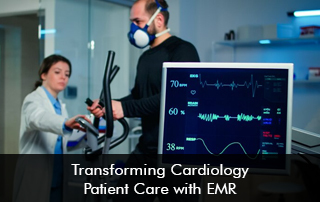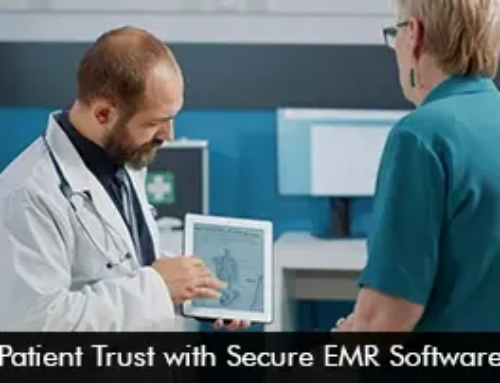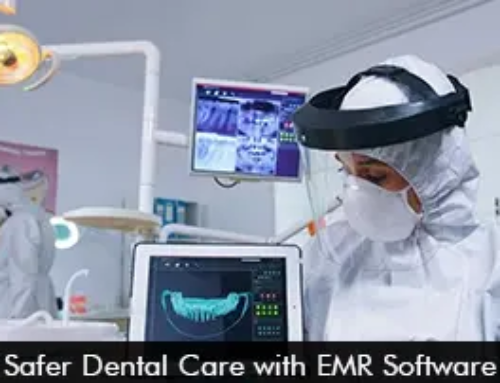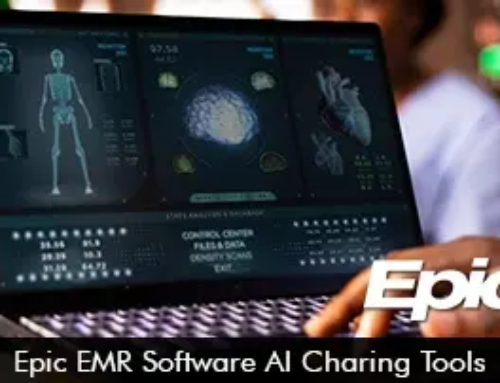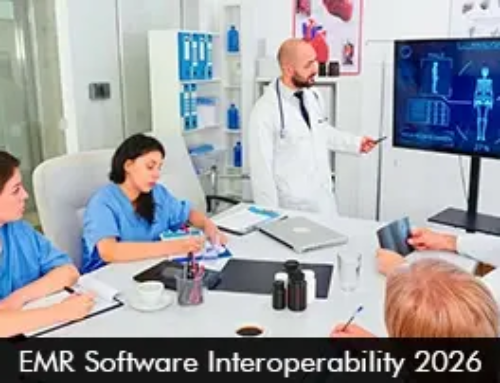Rapid advancements in cardiology have been transformed by the inclusion of Electronic Medical Record (EMR) technologies. Electronic Medical Records (EMRs) have greatly improved patient care by properly organizing patient data and facilitating easy communication between healthcare practitioners. On the other hand, cardiology EMR technology has even more bright future potential. With new insights on patient care and treatment approaches, we explore developing trends in cardiology that have the potential to completely transform the field.
Incorporation of Artificial Intelligence (AI):
• Artificial intelligence has the potential to have a big impact on cardiology EMR systems.
• AI algorithms can be used to analyze large patient data sets in order to identify patterns, forecast future events, and aid in diagnosis.
• Machine learning models that are able to learn from historical patient data enable more accurate risk classification and personalised treatment plans.
• AI-driven decision support systems enable cardiologists to make timely and well-informed decisions that improve patient outcomes.
Cutting-Edge Data Analytics:
• Advanced data analytics tools in the field of cardiology EMRs are ready to offer patients more insights.
• EMRs can anticipate treatment responses, find patterns, and identify risk factors by sifting through enormous databases.
• As a result, healthcare practitioners can put proactive early intervention methods and preventive measures into practice.
• Additionally, data analytics can be used to identify opportunities for quality improvement projects and optimize the allocation of resources.
Data Harmony and Interconnected Integration:
• Smooth Data Integration and Interoperability: The ability of cardiac EMR technology to share data and work flawlessly with a variety of systems, including wearable devices, pharmacies, and labs, is critical to its future success.
• This connectivity is essential as long as healthcare systems continue to merge together.
• Healthcare providers can improve patient care coordination and make well-informed decisions based on the most recent shared data by enabling real-time data exchange.
Patient Monitoring via Remote Access:
• One of the main developments in cardiology is the advancement of wearable technologies and remote monitoring.
• These advances will be easily integrated with EMRs, allowing for the rapid collection and analysis of patient data.
• Early detection of cardiac events is made possible by remote monitoring of vital parameters such as blood pressure, heart rate, and electrocardiogram (ECG) measurements.
• This allows for timely interventions. As a result, this promotes improved chronic condition management, reduced hospital stays, and increased patient comfort.
Patient Involvement & Empowerment:
• Enhancing patient empowerment and involvement will be a top priority for cardiac EMRs in the upcoming years.
• People can interact with their healthcare professionals, view their medical records, and follow their progress via patient portals and mobile apps.
• EMRs will provide educational resources and tailored recommendations to promote drug adherence and lifestyle modifications.
• Patients who are actively involved in their care and who participate can get better results and feel more in control of their cardiovascular health.
EMR Technology with AI, advanced Data Analytics:
•EMR technology in cardiology has had a profoundly positive impact on patient treatment.
•Cardiologists may now offer individualized, evidence-based therapy that improves outcomes by utilizing AI, advanced data analytics, improved interoperability, remote patient monitoring, and more patient engagement.
• These developments are expected to improve patient outcomes, maximize workflow effectiveness, and promote cooperation between medical staff.
• We believe that as technology develops, EMRs will further revolutionize the cardiology field and ultimately enhance patient heart health globally.
Cardiology EMR technology, fueled by AI, advanced analytics, and patient engagement, is poised to revolutionize patient care. Seamless data integration and remote monitoring enhance early detection and treatment. Patients are empowered through access to their records and personalized recommendations. As technology evolves, EMRs are expected to further transform cardiology, enhancing outcomes and promoting global heart health.


